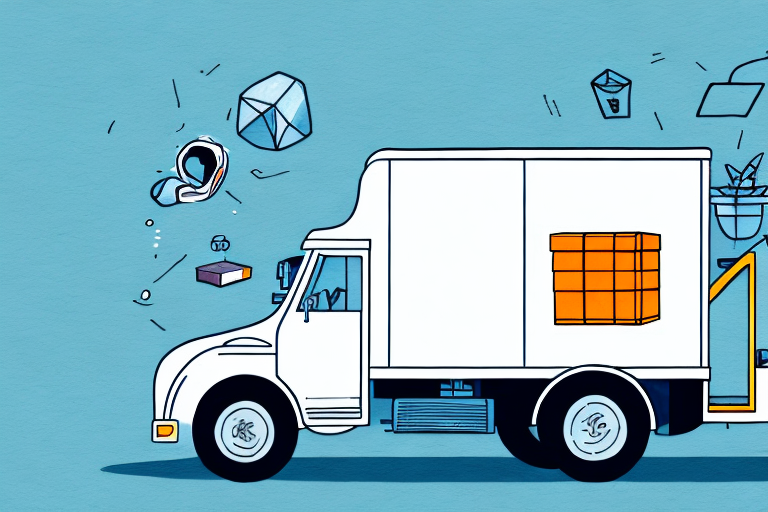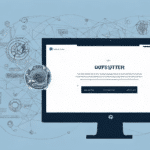Maximizing Efficiency in Delivery Services
Delivery services have become an essential aspect of modern business operations, particularly with the significant increase in e-commerce activities. As a result, most companies are continually searching for ways to ensure maximum efficiency in their delivery services. In this article, we will explore numerous strategies that can help companies streamline their delivery operations for optimal efficiency.
Importance of Efficient Delivery Services
Efficient delivery services are critical for the success of any business that relies on transportation, distribution, and logistics. According to Statista, global e-commerce sales are expected to reach over $6.3 trillion by 2024, emphasizing the need for efficient delivery mechanisms. Efficient delivery services help businesses to enhance customer satisfaction, reduce delivery costs, and improve the overall efficiency of their operations. Furthermore, in today's fast-paced business environment, customers expect timely deliveries. Therefore, efficient delivery services are essential for businesses that want to remain competitive.
Moreover, efficient delivery services can also help businesses reduce their carbon footprint and contribute to a more sustainable future. By optimizing delivery routes and using eco-friendly vehicles, businesses can reduce their emissions and minimize their impact on the environment. This not only benefits the planet but also enhances the reputation of the business as a socially responsible organization. Therefore, investing in efficient delivery services is not only beneficial for the bottom line but also for the long-term sustainability of the business and the planet.
Streamlining Delivery Operations
Optimizing Inventory Management
Effective inventory management is crucial for reducing delivery times and minimizing costs. By utilizing just-in-time (JIT) inventory systems, businesses can reduce storage costs and ensure that products are readily available for delivery. Implementing automated inventory tracking systems can also help in maintaining optimal stock levels and preventing overstocking or stockouts.
Implementing Advanced Route Planning
Advanced route planning is vital for maximizing delivery efficiency. Using route optimization software, businesses can determine the most efficient paths for their delivery vehicles, reducing travel time and fuel consumption. According to a report by visualobjects, companies can save up to 30% on fuel costs by optimizing delivery routes.
Integrating Delivery Management Software
Investing in comprehensive delivery management software can automate and streamline various aspects of the delivery process. Features such as real-time tracking, automated dispatching, and predictive analytics can significantly enhance operational efficiency and provide valuable insights for continuous improvement.
Selecting and Managing Delivery Partners
Choosing the right delivery partners is crucial for ensuring efficient delivery services. Businesses should evaluate potential partners based on reliability, speed, scalability, and flexibility. According to a study by Supply Chain Digital, partnering with reputable logistics providers can lead to a 20% improvement in delivery performance.
Moreover, maintaining strong relationships with delivery partners ensures better coordination and communication, which can further enhance delivery efficiency and customer satisfaction.
Enhancing Customer Experience through Delivery Services
Providing Real-Time Delivery Updates
Offering customers real-time updates on their delivery status can significantly enhance their experience. Utilizing GPS tracking and automated notification systems allows customers to monitor their orders, leading to increased trust and satisfaction.
Ensuring Delivery Accuracy and Reliability
Accurate and reliable deliveries are essential for maintaining customer trust. Implementing quality control measures and regular training for delivery personnel can help reduce errors and ensure that orders are delivered correctly and on time.
Overcoming Challenges in Delivery Efficiency
Optimizing delivery services for maximum efficiency can present numerous challenges, including vehicle breakdowns, driver shortages, and adverse weather conditions. To overcome these challenges, businesses must develop robust contingency plans and adopt proactive strategies such as predictive maintenance and flexible staffing models.
Additionally, implementing real-time tracking technologies can provide greater visibility into the delivery process, enabling businesses to promptly address any issues that arise and maintain smooth operations.
Measuring and Improving Delivery Efficiency
Tracking Key Performance Indicators (KPIs)
Measuring delivery performance is essential for identifying areas of improvement. Key performance indicators (KPIs) such as average delivery time, delivery accuracy, and customer satisfaction scores can provide valuable insights into the efficiency of delivery operations.
Utilizing Data Analytics for Continuous Improvement
Data analytics tools can help businesses analyze delivery data to uncover trends and patterns. By leveraging these insights, companies can make informed decisions to enhance their delivery processes and achieve continuous improvement.
Sustainable Practices for Efficient and Eco-Friendly Deliveries
Adopting sustainable practices in delivery operations not only benefits the environment but also enhances operational efficiency. Strategies such as optimizing delivery routes, using electric vehicles, and implementing reusable packaging can significantly reduce the carbon footprint of delivery services.
Moreover, incorporating green logistics practices can lead to cost savings through fuel efficiency and reduced waste, contributing to both environmental sustainability and improved business performance.
The Future of Delivery Services: Innovation and Efficiency in the Age of E-commerce
The rapid growth of e-commerce continues to drive innovation in delivery services. Emerging technologies such as drones, autonomous vehicles, and artificial intelligence are set to revolutionize the delivery landscape. For instance, companies like Amazon are already testing drone deliveries to enhance speed and efficiency.
Furthermore, advancements in artificial intelligence and machine learning can provide more accurate demand forecasting and route optimization, ensuring that delivery services remain adaptive and efficient in a dynamic market environment.
In conclusion, maximizing efficiency is essential for ensuring the success of delivery services in modern business operations. By adopting strategies such as automation, data analytics, and route optimization, companies can streamline their delivery operations, enhance customer experiences, and improve their overall competitiveness.
However, it is important to note that while technology can greatly improve delivery services, it is not the only factor to consider. Businesses must also prioritize sustainability and environmental responsibility in their delivery operations. This can include using eco-friendly packaging materials, optimizing delivery routes to reduce emissions, and exploring alternative modes of transportation such as electric vehicles or bicycles. By balancing innovation with sustainability, businesses can create delivery services that not only meet customer demands but also contribute to a healthier planet.



















